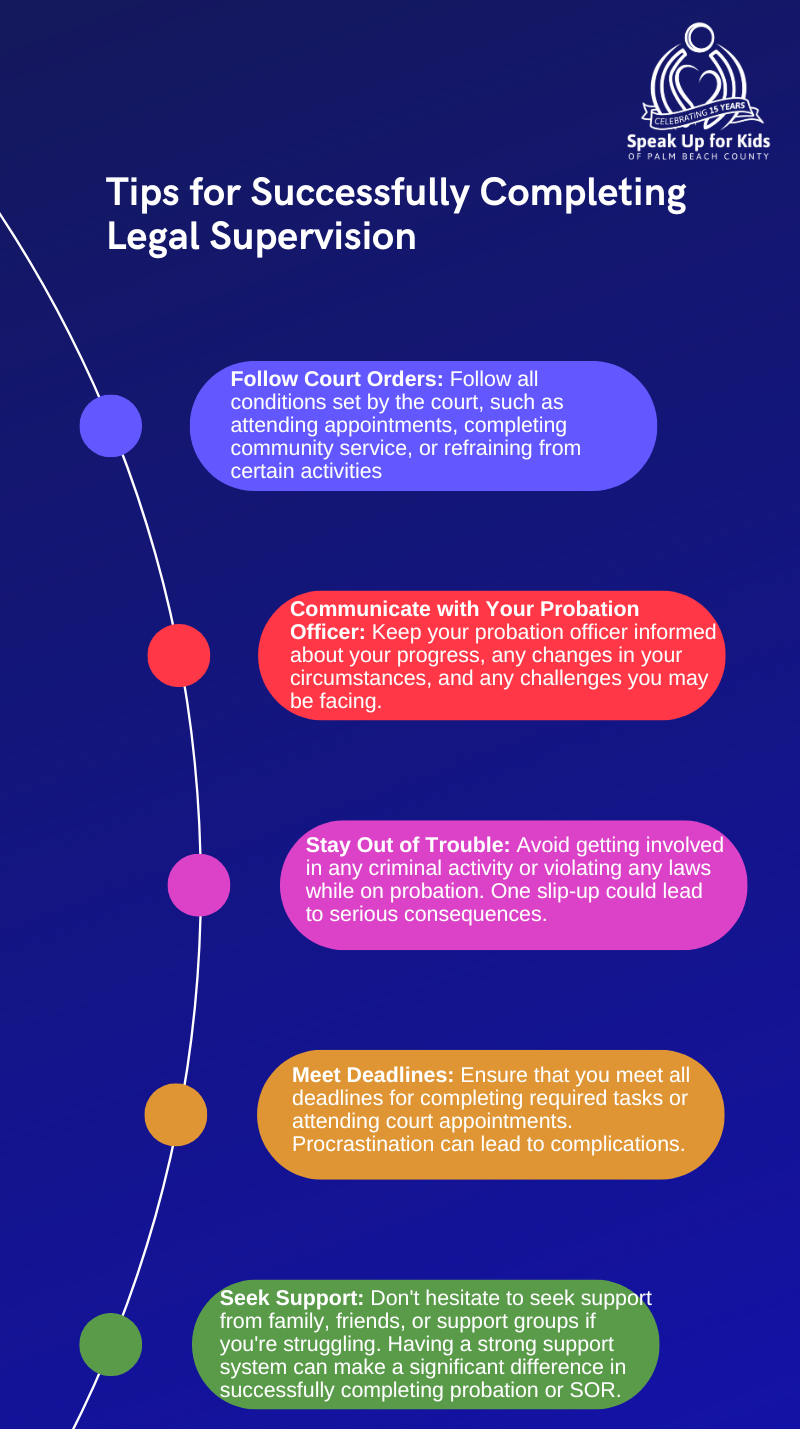Understanding Supervised Own Recognizance (SOR) and Probation: What You Need to Know
When individuals become involved in the legal system, they may encounter terms such as Supervised Own Recognizance (SOR) or probation. These terms refer to specific arrangements made by the court to supervise individuals who are awaiting trial or have been convicted of a crime. Here's a closer look at what SOR/probation includes and how it functions:
What is SOR/Probation?
Supervised Own Recognizance (SOR) or probation is a legal arrangement in which an individual is allowed to remain out of custody while their case is pending or after being convicted of a crime. This arrangement may involve various conditions and requirements put in place by the court, aimed at ensuring the individual's compliance with the law.
Key Features of Probation:
Release from Custody: Individuals on probation are typically released from custody either with or without the need to post bond. This means that they are allowed to return to their communities and resume their normal activities while their case is pending or following a conviction.
Requirement to Return to Court: One of the primary obligations of individuals on probation is to return to court for all scheduled hearings and proceedings. Failure to appear in court as required can result in serious consequences, including an issuance of a warrant for arrest.
Cooperation with Court: Individuals on probation are required to cooperate fully with the court and comply with any conditions or requirements imposed as part of their supervision. This may include attending meetings with probation officers, submitting to drug testing, maintaining employment or education, and refraining from criminal activity.
Supervision and Monitoring:
Individuals on probation are typically supervised and monitored by probation officers or other court-appointed officials. These officers oversee the individual's compliance with the terms of their supervision and may provide guidance, support, and resources to help them successfully complete their probationary period.
Consequences of Violating SOR/Probation:
Violation of the terms of probation can have serious consequences, including:
Issuance of a warrant for arrest
Imposition of additional conditions or penalties
Return to custody
It's essential for individuals on probation to understand their obligations and comply with the requirements imposed by the court to avoid these negative outcomes.
Supervised Own Recognizance (SOR) or probation is a legal arrangement that allows individuals to remain out of custody while their case is pending or following a conviction. Understanding the terms and requirements of probation is essential for individuals navigating the legal system, as compliance with court orders is necessary to avoid negative consequences. By fulfilling their obligations and cooperating with the court, individuals on probation can work towards successfully completing their supervision and moving forward with their lives.


